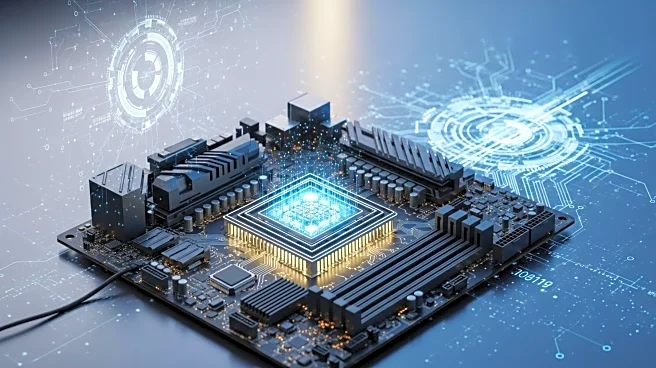What is the story about?
What's Happening?
The Trump administration is reportedly considering a new annual approval system for machinery exports to China by South Korean memory manufacturers Samsung and SK hynix. This comes after the recent revocation of their Validated End User status, which previously allowed easier exports to their Chinese factories. The proposed system would allow these companies to export specified quantities of machinery annually, rather than requiring approval for each shipment. This change aims to address concerns about technology leakage and equipment diversion to Chinese firms, while potentially stabilizing the companies' share prices, which dipped following the revocation.
Why It's Important?
The potential shift in U.S. export policy could have significant implications for the semiconductor industry, particularly in terms of supply chain stability and pricing. By allowing smoother exports, Samsung and SK hynix may be able to maintain production levels, which could prevent slowdowns in memory manufacturing. This is crucial for the availability and pricing of products like SSDs, RAM, and graphics cards. The move reflects ongoing tensions in the technological arms race between the U.S. and China, highlighting the delicate balance between national security concerns and economic interests.
What's Next?
If implemented, the new approval system could lead to more predictable export processes for Samsung and SK hynix, potentially stabilizing their operations and share prices. However, the exact quantities of machinery required each year may be challenging to predict, posing a risk of under or overestimation. The U.S. administration's decision will likely be closely monitored by industry stakeholders, as it could set a precedent for future trade policies affecting technology exports.
















